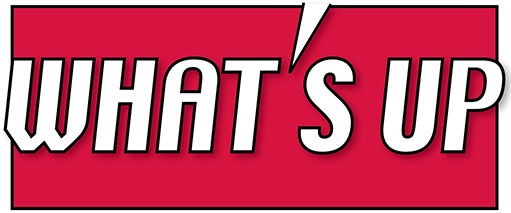
SUMI THOMAS reports on how a dying village in Uganda has been given new life.
During a civil war in the 1980s, a remote little village called Okere Mom-Kok was almost completely destroyed. The villagers who remained had to travel long distances to buy food and other supplies. The children’s school was far away. There were no hospitals or clinics nearby either.
Things are different now. From the front door of his house in that village, Ojok Okello watches children play and learn at a kindergarten. There is much hustle and bustle in the market and other public spaces in Okere Mom-Kok. A newly-revived kickboxing team puts up shows for the community. In the evening, the place is alive with people gathering to watch football on a big screen and to enjoy other social activities.
These changes are mainly the result of Mr Okello’s ambitious projects in the village. At first, he paid for the projects with his own money. “I think what I’m doing here is radical,” he told The Guardian.
Amina Yasin is an expert in city planning. She observes that Okere is unique and successful because it is intentionally being developed with the whole community in mind.
Mr Okello had left the village as a baby when his father was killed in the civil war. Years later, when he was in his 20s, he returned to visit his relatives. He was deeply troubled by the helplessness and poverty he saw.
Some years later, in 2018, he visited the village again. He asked the locals about their problems and what they needed. Then, he started working on projects to help the villagers meet their needs. He collectively calls the projects “Okere City”.

Education for all
One of Mr Okello’s first projects was a kindergarten. Mr Okello used his savings to build a small kindergarten on a plot of land that his relatives offered.
Parents pay half of the school fees in cash. They pay the remaining fees in maize, sugar, beans, and other farm produce. Foreign donors sponsor some of the children’s schooling.
Recently, Mr Okello also built a school. Lessons started at Okere City Primary School in April 2021 with five pupils and two teachers. They formed the Primary 4 class as directed by their government.
The adults too wanted to learn to read and write. So, Mr Okello started programmes for adults where they learn life skills and technical skills. Mr Okello and the community feel that education is the most important weapon in the fight against poverty.
Better healthcare
Three people died of malaria in just three months in Okere Mom-Kok. This prompted Mr Okello to open a clinic. This too was run with the whole community in mind. Residents could pay their medical bills in instalments. Besides treating common illnesses, the clinic also provides counselling and health education, just like clinics in the cities.
Thanks to its new facilities, Okere Mom-Kok is becoming a magnet that draws people from nearby villages. Mr Okello’s work has achieved better living standards for many within a short time.
“In the past we used to trek long distances to get medical services, but that is no more,” Govile Ogwang, who lives in a nearby village, said.
Another health issue Mr Okello and his team addressed was waterborne diseases. Villagers used to get water from wells. These wells were open and unprotected, and dried up during prolonged dry seasons. Now, villagers have clean water from a borehole, thanks again to Mr Okello. This helps to reduce cholera outbreaks, which are common in the region.

Power of shea butter
Isaac Newton discovered gravity when he observed an apple fall from its tree. Mr Okello’s next inspiration came while he was seated under a shea tree. The villagers had told him that they needed a way to make money.
“I thought about [Marvel’s] Wakanda and Black Panther — they had vibranium. This shea tree could be our vibranium,” Mr Okello told The Guardian. Together with the villagers, he experimented with processing shea nuts and turning them into butter for cooking and cosmetics.
The whole village now smells of shea butter. And, Okere Shea Butter is distributed to shops in 10 Ugandan cities. This project has also been good for the endangered shea trees. Now, they are protected, regrown, and conserved.
Growing trust
It took time for the people of Okere Mom-Kok to believe in Mr Okello. They had looked on him as a foreigner at first. Yet, Mr Okello kept talking to them and taking their feedback. They saw how he helped them get what they needed. He now has their trust and support.
Mr Okello continues to engage the residents in transforming their village. “I want us to be responsible for shaping the destiny and the future of the project,” he said.
VOCAB BUILDER
instalments (say “in-stal-mentz”; noun) = payment in parts, spread over a period of time.
borehole (say “bor-hoel”; noun) = a deep and narrow hole made in the ground to get water or oil.
